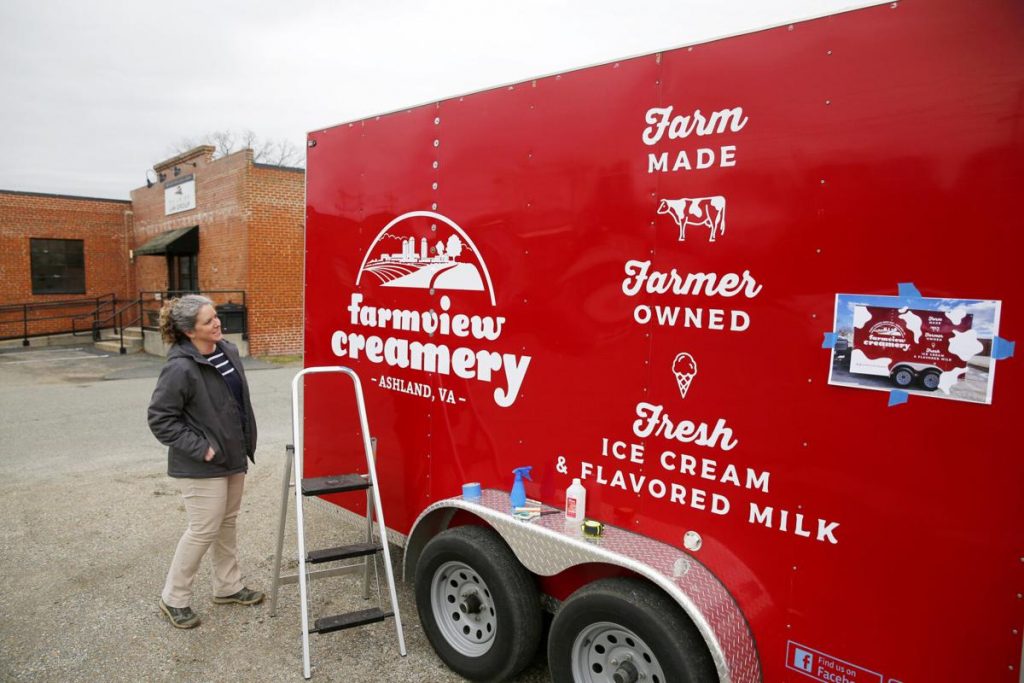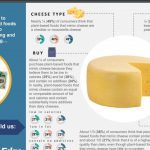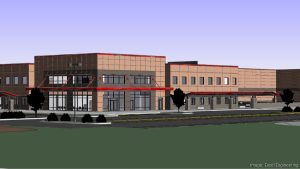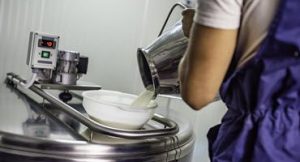
The Farmview Creamery is set to open in May, just in time for the summer ice cream season, running initially on Fridays and Saturdays out of a mobile food van at White Oak Dairy. Its primary location will be at the Ashland farm at 12091 Yowell Road, but the van could pop up at markets and events.
Longtime admirers and “connoisseurs” of ice cream shops across central Virginia, the Stanleys are planning an inaugural menu of eight rotating flavors with favorites that they’ve tested among their family and church community. Some of them so far are chocolate vanilla strawberry and honey peanut butter, along with well-known flavors, such as moose tracks, cookie dough and cinnamon. Altogether, they’ve tested 22 flavors.
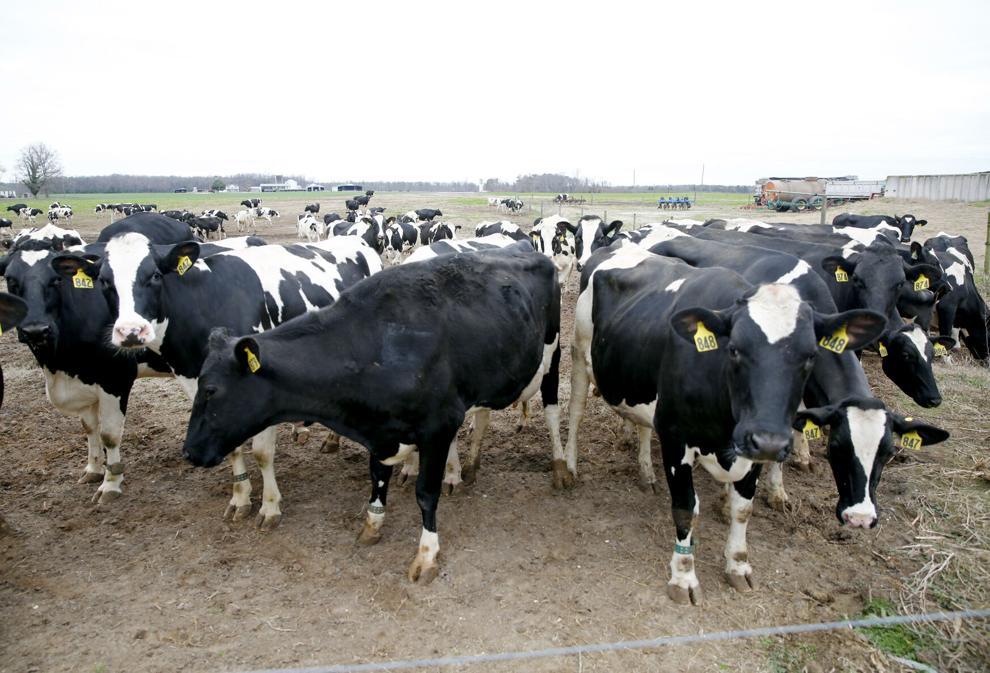
Daniel Sangjib Min, TIMES-DISPATCH
Farmview Creamy will start producing ice cream from a pre-made, pasteurized mix, with an eye on having its own on-site dairy in use as soon as possible. The creamery is just the first phase in the farm’s view to a new future. A second, larger phase would include a bottling operation in which the farm could possibly process its own milk and, therefore, reap the upside of better margins and selling directly to its customers.
Dairy farms across the country have generally faced economic hardships since the early 2000s. In Virginia, the number of Grade A dairy farms, those that meet certain sanitary standards to qualify for fluid consumption, is starting to wane. In 2017, there were 675 dairy farms. Today, there are only 475, according to the Virginia Farm Bureau.
A 2021 Department of Agriculture report shows that the United States has lost more than half of its dairy farms nationwide since 2003. Some of the largest milk producing states, such as California and Wisconsin, increased their overall production by becoming more efficient, but all states ended the year with fewer licensed operations than they started with.
The Thomas E. Stanley & Sons White Oak Dairy, a Grade A farm, is now owned by its second and third generations, William Stanley and one of his two sons, Joel Stanley, who runs the day-to-day operations alongside his wife, Missy Stanley.
When they bought the Ashland dairy from other family members in 2013, it had veered further into farming crops such as corn, soybeans and barley than it had traditionally. Joel Stanley wanted to grow the dairy to get back to the property’s roots. He kept some crop production to diversify the farm’s revenues. Shortly thereafter, dairy sales declined.
One reality about the dairy industry, and farming generally, is that farmers rarely set the price for their products.
“As time has gone on, we realized … you have to take [what you can get] for the milk coming in. It’s driven by the market, and we’re not getting as much for our milk as we were 15 years ago,” Joel Stanley said.
His first year at the farm’s helm in 2014 was a good one. Then things took a nosedive, and it was rough financially until about 2020 when revenues increased a little.
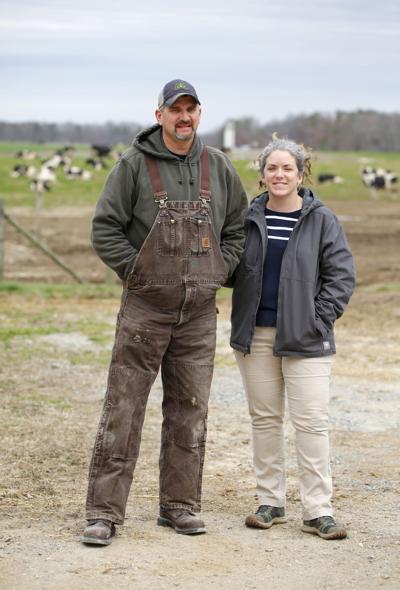
Daniel Sangjib Min photos, TIMES-DISPATCH
“It was just bottom of the barrel; we were barely making it,” Joel Stanley said.
Milk prices nationally dropped about 28% in 2015, reports show. Measured in hundredweight — or 100 pounds of milk — the price went from a 12-month average of $25.70 in September 2014 to $17.60 a year later.
“I liken this to your employer calling tomorrow and cutting your salary 28%,” said Whitney Perkins, assistant director for the Virginia Farm Bureau Federation.
That 28% decrease in revenue for farmers like the Stanleys doesn’t even factor costs such as hauling, advertising, fees, promotion or co-op membership dues they might incur while selling milk.
Milk prices have since risen back to a 12-month average of $25.56 per hundredweight, but Perkins noted that overhead costs largely overshadow that gain.
Joel Stanley started helping his father with some chores around the dairy when he was just 8 years old. By the time he was 15, he worked with cattle, three cows, a bull and had some chores with the hog farm.
In a Richmond Times-Dispatch story that ran in November 1989, his grandfather and first-generation owner Thomas E. Stanley said he worried about the future of the farm. On the one hand, he was wary about how incoming Ashland development might impact rental rates for the 600 acres they leased. On the other, he was staving off purchase proposals for the 360 acres they owned outright.
White Oak was one of nine remaining Hanover dairies in 1989, and it’s persevered.
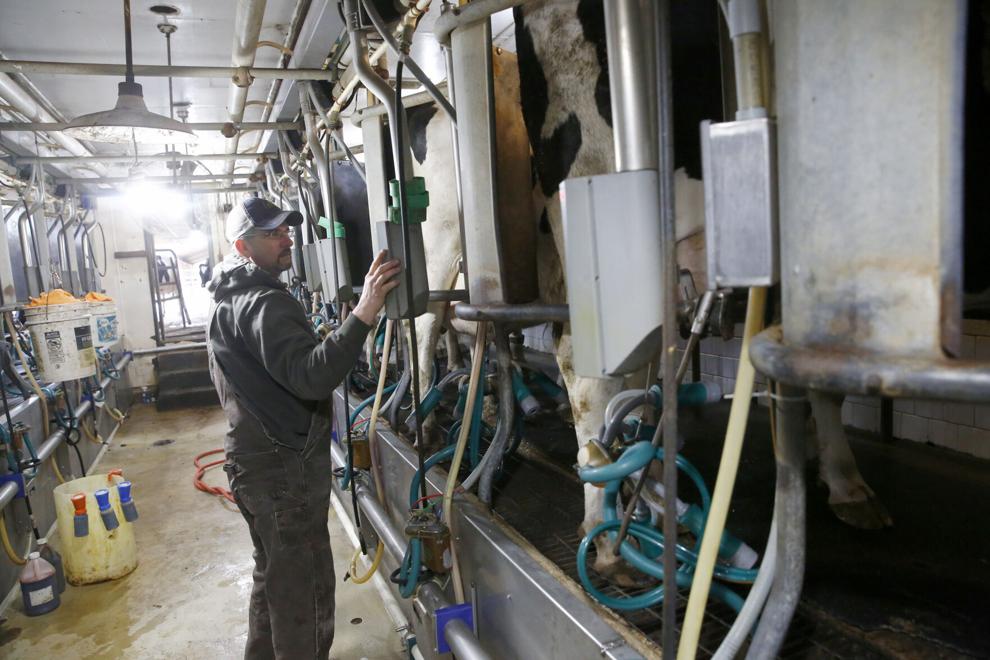
Daniel Sangjib Min, TIMES-DISPATCH
Today, the Stanleys milk about 180 cows twice daily, once at 1 p.m. and again at 2 a.m. That produces about 15,000 pounds, or about 1,800 gallons daily. The farm’s overall revenues are diversified through crops, but margins are still tight.
The dairy’s movement toward adding a creamery is the start of a new dream for the farm. The Stanleys are hoping they’ll be able to squeeze more revenue out of fewer acres of farmland. A revenue bump from ice cream sales would mean less pressure to farm and sell crops, so that they could focus on dairy.
“The creamery is a way to capitalize on the 265 acres we have, and not have to go out and farm 500 extra acres,” Missy Stanley said.
The Stanleys are working with the Virginia Foundation for Agriculture, Innovation and Rural Sustainability to complete a feasibility study that was funded by a grant from the University of Tennessee’s Southeast Dairy Business Innovation Initiative, which focuses on helping dairy farms diversify their products.
Perkins, also an assistant director for VAFAIRS, is helping with the feasibility study that ideally will show that the Stanley’s plan for an on-site bottling and processing facility is economically viable.
Factors behind the declining dairy industry are vast. Economic reasons, technological shifts and a rise of plant-based milks have all played a part.
Perkins said that the bottling operation would give the Stanleys more control over the price they can charge for their product, while also cutting out expenses in the middle. The creamery helps twofold, both as a new focus and revenue stream, and to bring people to the farm.
“We as a society have moved away from living on farms. Most folks are multiple generations removed from farms,” Perkins said. “For the Stanleys moving to this, it allows them to connect with consumers. It allows consumers to see farmers and hear their story and learn about milk production and dairy production in a way that we haven’t had for a very long time.”
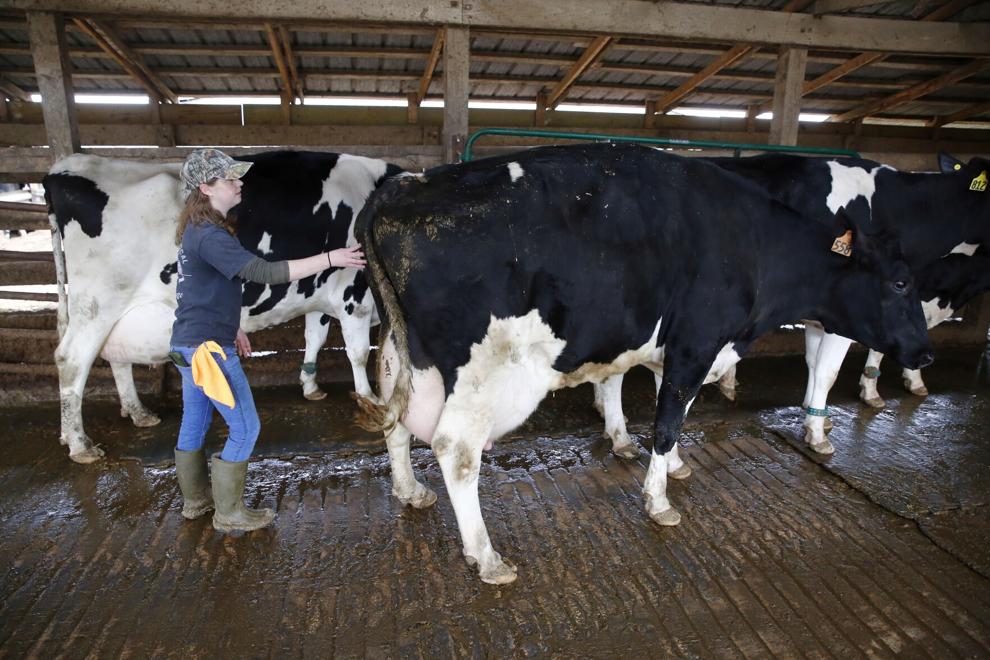
Daniel Sangjib Min, TIMES-DISPATCH
Ultimately, that comes down to creating a place that people want to visit and get a frozen treat.
“We realize there are a lot of good ice cream shops,” Missy Stanley said. “What we’re bringing to the table is more than that. We want to share our farm with people while they enjoy that ice cream and make good memories with their families.”
Joel and Missy Stanley also hope that the creamery, plus the possibility of tech upgrades, such as automatic milking, could make running the farm a more attractive career plan for their daughter or nephews.
“We’ll be able to reduce the size of our herd, which will be more manageable for the next generations. We’re trying to set up a model for a different kind of farm,” Missy Stanley said.
Joel Stanley noted that he would love for his daughter to take over the farm, but that he isn’t standing in the way of any future goal and aspirations she might have.
“I don’t want to discourage them from that, but I would love to see children come back to the dairy and keep it going just like it always has,” Joel Stanley said.
Farmview Creamery will have updates on its hours and pop-up locations on its Facebook page for Farmview Creamery at facebook.com/farmviewcreamery.
